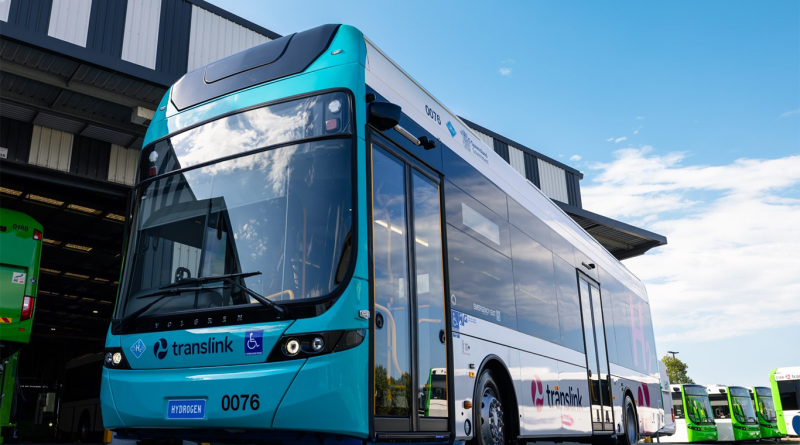Hydrogen-Powered Buses Debut in Australia as Volgren and Wrightbus Lead Zero-Emission Charge
Australia has made a bold move toward sustainable transportation with the launch of Volgren’s first locally built hydrogen-powered bus. This achievement, in collaboration with Wrightbus, a global leader in zero-emission technologies, strengthens Volgren’s commitment to environmentally friendly public transport.
The project also highlights Australia’s growing interest in hydrogen-powered vehicles as a solution for cleaner public transport. With a second bus already in production, Volgren’s Zero Emission Bus portfolio, which now exceeds 150 buses across both battery-electric and fuel-cell variants, demonstrates the company’s leadership in this sector.
Volgren’s role in advancing hydrogen bus technology
As the largest bus body manufacturer in Australia, Volgren has established itself as a leader in zero-emission transport. The introduction of hydrogen-powered buses adds a new dimension to its already extensive Zero Emission Bus portfolio, which is dedicated to reducing carbon emissions and improving urban air quality.
This progress is largely due to Volgren’s collaboration with Wrightbus, the creators of the world’s first hydrogen-powered double-decker bus. By bringing Wrightbus’s hydrogen fuel cell technology to Australia, Volgren has adapted this innovative solution to meet local needs.
The Wrightbus collaboration: a step forward in hydrogen transport
The collaboration between Volgren and Wrightbus represents a significant milestone in hydrogen transport technology. Wrightbus has a proven track record, having introduced its fuel cell powertrains across Europe, where cities like London and Berlin are using them to cut emissions. Their decision to partner with Volgren marks their first entry into the Australian market, an expansion that will bring global expertise to local solutions.
Wrightbus CEO Jean-Marc Gales has emphasized the strategic importance of this partnership, noting that it provides both companies the opportunity to lead in sustainable transport innovation. For Volgren, this collaboration enhances their ability to deliver advanced zero-emission buses while also ensuring that Australian cities can benefit from the latest advancements in hydrogen technology.
Innovation and local manufacturing for Australia
Volgren’s decision to locally manufacture hydrogen-powered buses is a major win for Australia’s economy. The project has created jobs and fostered skills development, while strengthening local supply chains and showcasing Australia’s capabilities in clean technology manufacturing.
Hydrogen fuel cell technology offers significant environmental advantages. By converting hydrogen into electricity, these buses emit only water vapor, providing a cleaner alternative to diesel-powered vehicles. This makes them a key component in reducing urban pollution and supporting cities’ efforts to meet sustainability goals.
Volgren’s focus on local production also encourages greater innovation within Australia’s transport sector. As more regions adopt zero-emission public transport solutions, these buses are poised to become an essential part of Australia’s green future, reflecting the potential for domestic manufacturers to lead in global sustainability efforts.
Volgren’s zero-emission vision
Volgren’s vision for the future extends beyond individual projects. The company aims to build a comprehensive network of zero-emission buses across Australia, powered by both hydrogen fuel cells and battery-electric technologies. Volgren remains committed to expanding its Zero Emission Bus portfolio, solidifying its role in Australia’s shift toward greener public transport and its place in the global movement toward sustainability.
Sources:
